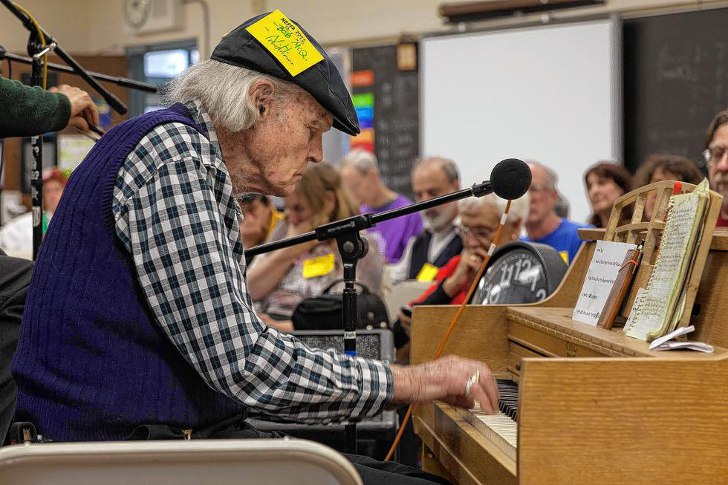The idea of organizing a folk festival in Massachusetts came to several members of the Boston YWCA (Young Women’s Christian Association), the female counterpart of YMCA, in 1944. They were inspired by the popularity of the traditional square dances which were frequently held in Boston and drew over 200 people weekly. According to Mary Gilette, one of the festival’s founders, their main goal was to create a folk festival where New England’s numerous ethnic groups could present their music, dances and crafts to a wide audience in a welcoming, informal setting.
The first New England Folk Festival was held on October 28 and 29, 1944. It drew around 200 attendees who came to watch the performances of local ethnic dance groups. The first five editions of the festival were held at the Boston YWCA. From 1951 to the early 2000s it was held in a variety of cities and towns in the Boston area including Worcester, New Hampshire, Exeter, Manchester, Rhode Island, North Kingston, Brockton, and Lowell. Mansfield has been the host city since 2007.
The New England Folk Festival is managed and run by the New England Folk Festival Association (NEFFA). Its program is built around traditional social and folk dance. Three main genres of dance which are heavily featured at the festival are international folk dance, contra dance and English country dance.
Along with participatory dancing, the program of the festival includes more intimate performances and workshops, dance and music demonstrations, concerts, discussions, and other events and activities. A courtyard outside is devoted to sword dancing.
The festival is run by volunteers and all the performers are volunteers as well. Numerous folk dance groups and performers come from all over the state to celebrate New England’s folk dance tradition and to help engage the attendees in dancing, singing, jam sessions and other activities.
The rich and diverse program of the festival features a lot of participatory dancing for all levels of expertise, dance performances, food booths and trucks, live music everywhere, handmade crafts and craftsmanship demonstrations, a bazaar, a hands-on activity room for visitors of all ages, discussion sessions, family events, and more.
In 2021 and 2022, the event was held online due to the coronavirus pandemic.

Photo: ledgertranscript.com




